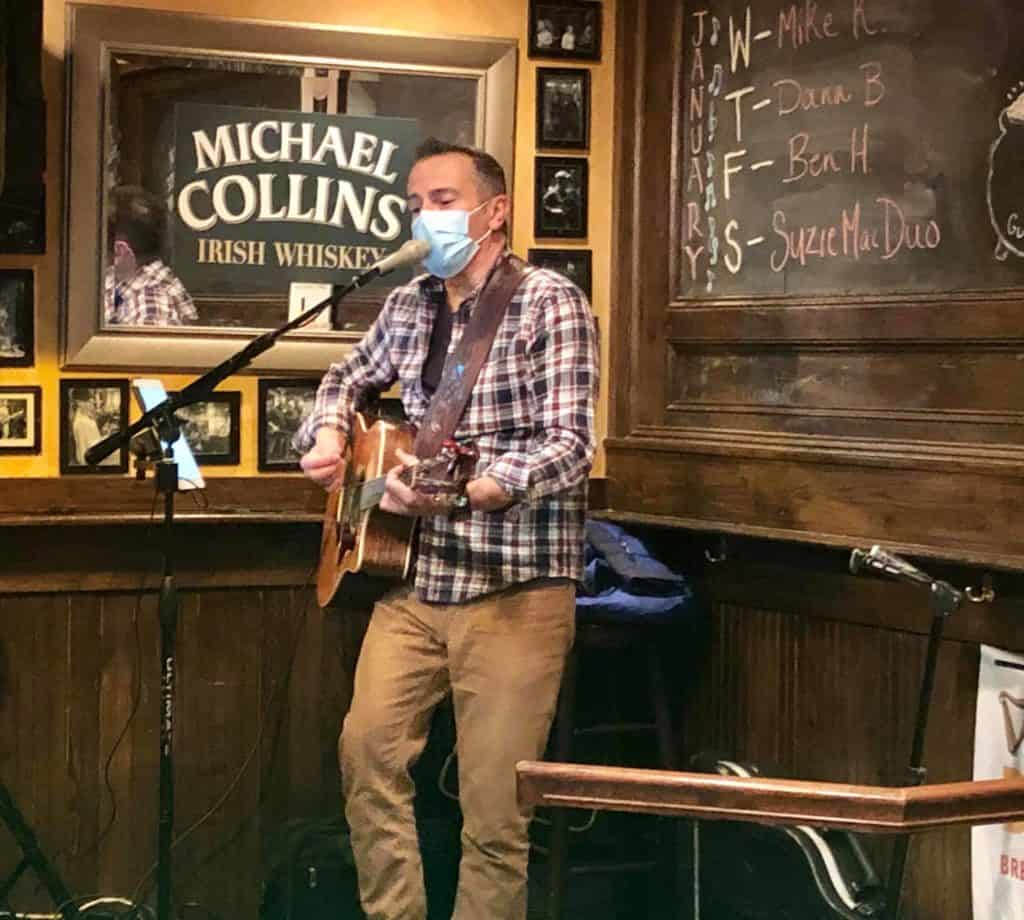Getting By with a Little Help From Friends

AMFM keeps musicians afloat
By Charlie Youngmann
Despite the pandemic putting a temporary end to live music as we once knew it, Annapolis musicians have somewhere to turn for support. The Annapolis Musicians Fund for Musicians (AMFM), founded in 2005, has been putting money in the pockets of artists in the area for decades.
Founded by musician Matt McConville, along with Martha Jacobs, Meg Murray, Sean O’Neill, Jim Cullen and Christian Elkington, the organization has traditionally relied on its own benefit shows to raise money for struggling artists.
With an end to live events, AMFM became a lifeline for musicians. This month, the group announced a new initiative to continue supporting the artists hit the hardest. A dedicated COVID relief fund will now provide one-time payments to out-of-work musicians.
“The original mission statement was to create a proactive fund for musicians,” McConville said.
In 2006, AMFM established their “Lost Gig Fund”, which provided compensation for Annapolis musicians who had a show canceled for reasons they couldn’t control, McConville said. The fund covered up to $100 per canceled show, a concept that was entirely unique at its time of creation. Shortly after, AMFM created a “Catastrophic Fund” that would pay out a larger lump sum of up to $8,000 to musicians who have recently suffered some form of personal disaster that greatly impacted their life, McConville said.
With so many shows canceled indefinitely due to COVID-19, AMFM saw a dramatic increase in the number of applicants seeking relief.
“We had exhausted our Lost Gig Fund by early summer, after providing over $106,000 in assistance to musicians during the spring shutdown,” says McConville. “But the community is incredibly supportive of the arts, and after doing some innovative online fundraising over these past six months, we’re ready to get back to work.”
The newly launched COVID-19 Emergency Relief Fund is available to qualifying musicians who have suffered financial hardship during the pandemic. The deadline for applying for benefits is 11:59 p.m. on January 31, 2021.
AMFM plans to continue its youth scholarship and award programs in 2021. Because the organization’s overhead is extremely low, over 94 percent of donations received go directly to musicians, says McConville.
A sailor and author, McConville established himself as a performer playing in local bars when he returned to Annapolis in 1993. Within a few years, he noticed that while many of his contemporary musicians were excellent songwriters, most made a living playing covers rather than their own material. He set a goal to create a network of musicians in order to secure consistent gigs that paid better than coffee house performances. He called it the Homemade Wine concert series.
“When you’re gigging, you’re out there playing like four nights a week, five nights a week, and you don’t see what everybody else is doing and you’re not getting to know anybody else,” McConville said.
Many performers who participated were accustomed to the bar scene: loud and crowded, with more attention paid to the overall atmosphere than any particular song, he says. In the Homemade Wine series, people came for the original music and that typically meant all eyes were locked on the stage, McConville says.
“That’s really where it happens. It’s in that space between the audience and the performer,” McConville said. “In a bar, when everyone’s yelling and talking and everything, there is no space.”
Living in Annapolis, McConville began to notice the number of benefits held in the area. Though the cause and patronage would vary, each utilized live performances, usually by four or five local bands. McConville thought this model would work even better if the benefit itself was for the musicians performing, he said.
After a couple of successful benefit shows, McConville and his fellow board members had the seed money they needed to get AMFM off the ground.
McConville came to realize the lack of a safety net for working musicians. Shows could be double-booked or canceled, and musicians could get injured without the insurance or benefits of most other jobs. He saw that some sort of relief fund for musicians could be life-saving.
“That way, when somebody busted a finger and they couldn’t play anymore, we could just get them some money right now,” McConville said.
It’s a model that has proven itself in an unexpected way during the greatest catastrophe to live music we have ever witnessed.
Though he’s been asked if AMFM has plans to grow to the state or national level, McConville’s answer is always the same. The fund exists to give back to this community, and keeping its influence local to Annapolis is part of what makes it powerful, he said.
